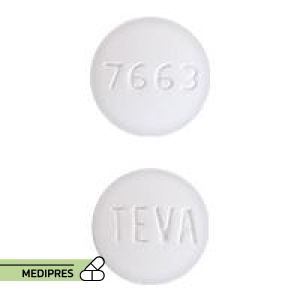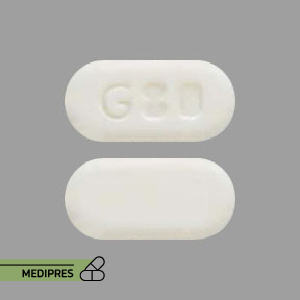
Ergotamine and caffeine (Oral)
23 June, 2023
Eryc
23 June, 2023Erlotinib Tablets
Generic name:
Erlotinib
Drug class:
Epidermal growth factor receptor (EGFR) tyrosine kinase inhibitor
Dosage form:
Oral tablets: 25 mg, 100 mg
Root of administration:
Oral
Dose:
Standard adult dose for metastatic non-small-cell lung cancer (NSCLC): 150 mg once daily. For pancreatic cancer (in combination with gemcitabine): 100 mg once daily. Dose reductions for toxicity: 100 mg then 50 mg once daily. Use 25 mg tablets for titration. In moderate to severe hepatic impairment: consider initial dose of 100 mg and adjust per tolerability. No adjustment required for mild to moderate renal impairment; data in severe renal impairment are limited.
Mechanism of action:
Erlotinib selectively inhibits the ATP-binding site of the EGFR tyrosine kinase, preventing receptor autophosphorylation and downstream signaling pathways involved in tumor cell proliferation and survival.
Drug usage cases:
- Metastatic non-small-cell lung cancer (NSCLC) with EGFR activating mutations (approved)
- Locally advanced, unresectable or metastatic pancreatic cancer in combination with gemcitabine (approved)
- Off-label: locally advanced or metastatic head and neck squamous cell carcinoma
- Off-label: metastatic colorectal cancer, cervical cancer, glioblastoma (investigational)
Drug contra indications:
- Hypersensitivity to erlotinib or any component of the formulation
Side effects:
- Dermatologic: papulopustular rash, acneiform rash, pruritus, dry skin, paronychia, alopecia
- Gastrointestinal: diarrhea, nausea, vomiting, anorexia, abdominal pain
- Hepatic: elevated AST, ALT, bilirubin; hepatic failure
- Respiratory: interstitial lung disease, dyspnea, cough
- Ocular: keratitis, conjunctivitis, dry eye, corneal perforation (rare)
- General: fatigue, asthenia, fever
- Metabolic: dehydration, electrolyte imbalance
- Cardiovascular: hypertension, thrombosis, myocardial infarction
- Hematologic: anemia, leukopenia (rare)
- Infections: sepsis (rare)
- Gastrointestinal perforation (rare)
- Hemorrhage: pulmonary and other bleeding events
Warnings:
- Interstitial lung disease–like events: may be fatal; monitor for new or worsening pulmonary symptoms
- Hepatotoxicity: monitor liver function tests; discontinue or reduce dose for severe injury
- Gastrointestinal perforation and hemorrhage: risk increased with combination therapy; monitor closely
- Dermatologic toxicity: may correlate with efficacy; manage with topical/systemic therapy
- Ocular disorders: monitor; avoid contact lenses if ocular irritation develops
- Dose modification with CYP3A4 inhibitors/inducers: adjust dose to maintain exposure
- Smoking reduces erlotinib exposure: counsel patients to stop smoking
- Cardiovascular toxicity: monitor blood pressure and signs of thromboembolism
- Pregnancy category D: potential fetal harm
Use during pregnancy or breastfeeding:
Erlotinib can cause fetal harm when administered to pregnant women. Women of reproductive potential should avoid pregnancy during treatment and use effective contraception. If pregnancy occurs, discontinue erlotinib. It is unknown whether erlotinib is excreted in human milk; breastfeeding is not recommended during treatment and for at least two weeks after the last dose.



